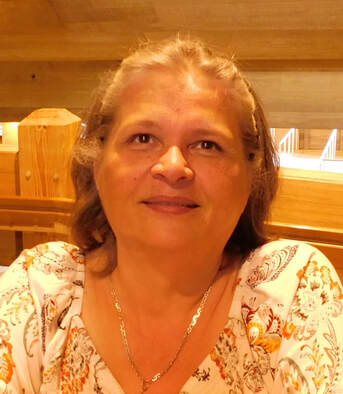 By Donna Schlacter When I was a kid, I loved to read. And once I’d worked my way through the children’s section of our local library, I begged the librarian to let me read from the adult section. I read Jack London and others who wrote about animals, moving on to Zane Grey and Louis L’Amour because I loved horses. The librarian made sure she approved every book I checked out. And then I discovered Agatha Christie, which ignited my passion for mysteries. Everywhere I went, I looked for the baker’s son who pulled wings off flies, or the mailman who kicked dogs, or the housewife who wore her negligee to hang clothes—all of those peculiar mannerisms Miss Marple mentioned in solving the crime. And I worked on triggering “those little grey cells” like Hercules Poirot said. In writing class, I was the kid who got A+ because of word count. I loved to write. I’d make up stories about anything. The last leaf on the tree in the fall—what was it thinking? Why didn’t it want to join its friends? How about the one bird sitting by itself on the telephone wire. What had it done to be excluded from the flock? Or did it think it was an eagle and not a pigeon? Stories from my childhood like The Ugly Duckling andThe Prince and the Pauper ignited “What if. . . ?” questions. What if I’d been born in a different family? What if I wasn’t the oldest? What if I had a twin? Perhaps because I was the oldest and I got blamed not only for what I did but for what my siblings did as well, I have a strong sense of justice. Right is right, and wrong is wrong, and there isn’t much grey area between the two. So writing mysteries seemed like the way to ensure that my world was always in alignment. Starting around 2002, after writing short stories and other short pieces for a while, I wondered if I had a full-length book in me. I heard about National Novel Writing Month, and decided to find out if I could write 50,000 words about one thing: solving a mystery. I started late, had only the barest bones of a story, and ended up writing myself into a corner because I didn’t know who the criminal was. But I persevered, decided who would be the killer, and wrote 7,500 words on November 30th, bringing my word count to just over 50,000 words. Did I mention I’m also very badge-driven? So on December 1st, I went back in and put in red herrings and clues as to the killer’s motivation, because I hate it when a television show or author springs the solution without offering any clues along the way. After about ten more revisions through the years, I independently published that book, now renamed No Accounting for Murder,the first in a series. Number 11 came out the end of December under my pen name of Leeann Betts. So what inspires me? Well-written stories ignited the passion to prove myself worthy of reading and dreaming and imagining along with the author. The characters and stories tumbling around in my head cry out to be written down. Hearing others say, “I’d like to try writing a book some day”, but not being willing to do the hard work keeps me going. Seeing my father hold the story of his life in his hands as a book published for the family confirms my calling. And finishing the story of his life as he wanted, even after his passing, reminds me that time is short and we aren’t always guaranteed tomorrow. Hearing readers say they enjoyed the story confirms that I have a gift that shouldn’t be wasted. Teaching at conferences and online courses, and hearing students say, “I finally get it” keeps me working at my craft. And sharing my story with you reminds me that this isn’t all about me—it’s about what God is doing in me and through me. The way I figure it, others have their way of touching people’s lives, through their speaking, their service, their preaching. I touch lives through my writing. But that writing is still only a tool. The message I bring is that God offers second, third, fourth and more chances. I’m living proof of that. I’ve messed up more times than I have fingers and toes. Yet here I am, being used by Him to share His love. What more inspiration do I need? About Double Jeopardy: Set in 1880, Becky Campbell leaves her wealthy New York lifestyle in search of her father, only to learn he was murdered in the small town of Silver Valley, Colorado. Unable to return to her mother in humiliation and defeat, she determines to fulfill her father’s dream—to make the Double Jeopardy profitable. Zeke Graumann, a local rancher, is faced with a hard decision regarding his land and his dream. After several years of poor weather and low cattle prices, he will either have to take on a job to help pay his overhead expenses, or sell his land. He hires on with this Easterner for two reasons: he can’t turn his back on a damsel in distress. And he needs the money. Becky isn’t certain Zeke is all he claims to be, and after a series of accidents at her mine, wonders if he isn’t behind it, trying to get her to sell out so he can take over. Zeke finds many of Becky’s qualities admirable and fears he’s losing his heart to her charms, but also recognizes she was never cut out to be a rancher’s wife. Can Becky overcome her mistrust of Zeke, find her father’s killer, and turn her mine into a profitable venture—before her mother arrives in town, thinking she’s coming for her daughter’s wedding? And will Zeke be forced to give up his dream and lose his land in order to win Becky’s heart? Leave a comment to enter a random drawing for an ebook copy of Double Jeopardy. 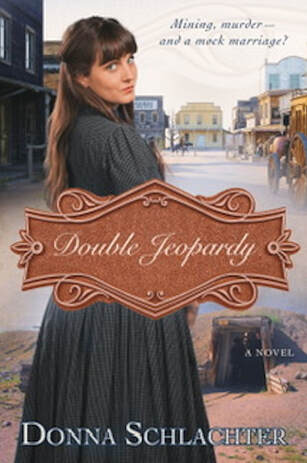 Excerpt: Chapter 1 1880 Silver Valley, Colorado Dead. Dead as her dreams and her hopes. Dead as a doornail, as her mother would say. Just thinking about the woman drove a steel rod through Becky Campbell’s slumping back. Perched on a chair in the sheriff’s office, she drew a deep breath, lifted her shoulders, and raised her chin a notch. She would not be like the woman who birthed her. Pretty and pampered. A silly socialite finding nothing better to do with her days than tea with the mayor’s spinster daughter or bridge with the banker’s wife. No, she’d much rather be like her father. Adventuresome. Charismatic. Always on the lookout for the next big thing. Now her breath came in a shudder, and down went her shoulders again. She tied her fingers into knots before looking up at the grizzled lawman across the desk from her. “There’s no chance there’s been a mistake in identification, is there?” He slid open the top drawer of his desk and pulled out a pocket watch, a lapel pin, and a fountain pen, which he pushed across the desk to her. “He was pretty well-known around here. I’m really sorry, miss.” Becky picked up the timepiece and flicked open the cover. Inside was a photograph of her family, taken about ten years earlier when she was a mere child of eight and Father stayed around long enough to sit still for the portrait. Her mother, petite and somber, and she, all ringlets and ribbons. She rubbed a finger across the engraving. To R. Love M. Always. Yes, this was his. And the lapel pin, a tiny silver basket designed to hold a sprig of baby’s breath or a miniature rosebud—a wedding gift from her mother twenty years before. She looked up at the sheriff, tears blurring her vision. “And his ring?” The lawman shook his head. “No ring. Not on his body or in his shack.” “But he always wore it. Never took it off.” He shrugged. “Maybe he lost it. Or sold it.” “I doubt he’d do either. My mother gave it to him when I was born.” She peered at him. Had he stolen her father’s ring? Or maybe Sheriff Freemont was correct. Maybe something as important as her birth hadn’t meant much to her father. Maybe she didn’t either. Was that why he left? Available at https://shoplpc.com/double-jeopardy/Amazon.com, and fine booksellers in your area. About Donna: Donna lives in Denver with husband Patrick. As a hybrid author, she writes historical suspense under her own name, and contemporary suspense under her alter ego of Leeann Betts, and has been published more than 30 times in novellas and full-length novels. She is a member of American Christian Fiction Writers, Writers on the Rock, Sisters In Crime, and Christian Authors Network; facilitates a critique group; and teaches writing classes online and in person. Donna also ghostwrites, edits, and judges in writing contests. She loves history and research, and travels extensively for both. Donna is represented by Terrie Wolf of AKA Literary Management. www.HiStoryThruTheAges.wordpress.com www.HiStoryThruTheAges.comReceive a free ebook simply for signing up for our free newsletter! Facebook: www.Facebook.com/DonnaschlachterAuthor Twitter: www.Twitter.com/DonnaSchlachter Books: Amazon: http://amzn.to/2ci5Xqqand Smashwords: http://bit.ly/2gZATjm What Can Be Online University: https://what-can-be-online-institute.teachable.com/
5 Comments
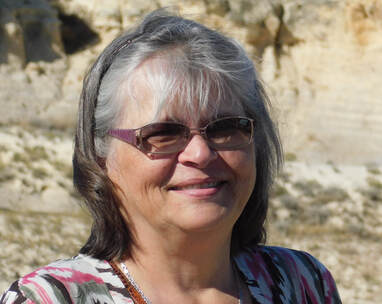 By Leeann Betts Readers—and writers, too, for that matter—often ask me where I get the ideas for my stories. Well, in this case, I wanted to set my story in Colorado so I could enter several state-based writing contests that require a Colorado setting. As I do with just about every book in this series, I made up a fictional town based on a part of the state I’d recently visited and which I thought readers might like to learn more about. The Grand Mesa/Mesa Verde National Park area on the western slopes of Colorado is a world unto itself. The scenery is spectacular, the weather is iffy, but the people are generally warm-hearted and compassionate. I also wanted a politically conservative setting, because while not exclusively so, politically conservative folks also tend to be church-goers, and I wanted both Carly and Mike to be slam-dunked into a situation where they had to re-examine their spiritual beliefs. Throughout this series, a little here and a little there, Carly and her husband have been introduced to the Christian faith. The couple who hosts Carly and Mike on their working vacation are named after very good friends—first names, only. Their last name was drawn from a desire to design a brand that I could draw. A Lazy L, in brand terms, is one that lays horizontally. The details about the black-footed ferrets are mostly true. Not about the truck accident that dropped several of the critters on the western slope, but they were transported down I-25 into Arizona and New Mexico. At the timing of this story, 2005, they were on the “extinct in the wild” list, although they have since recovered are now on the “endangered” watch list. Leave a comment, and I will draw randomly for a print copy (US only) or ebook version (winner’s choice) of Missing Deposits. About Missing Deposits: Carly looks forward to a vacation when Mike is hired to assist an association of ranchers in western Colorado catalogue their various mineral rights following the discovery of several large deposits. However, Carly soon learns that the real wealth—and the real danger—aren’t below ground. Someone is out to keep a secret bigger and more profitable than gold and copper. And they’re willing to kill for it. About Leeann: Leeann Betts writes contemporary romantic suspense, while her real-life persona, Donna Schlachter, pens historical romantic suspense. Missing Deposits is the 11th title in her cozy mystery series, and together she and Donna have published more than 30 novellas and full-length novels. They ghostwrite, judge writing contests, edit, facilitate a critique group, and are members of American Christian Fiction Writers, Writers on the Rock, Christian Authors Network, and Sisters in Crime. Leeann travels extensively to research her stories, and is proud to be represented by Terrie Wolf of AKA Literary LLC. Website: www.LeeannBetts.comReceive a free ebook just for signing up for our quarterly newsletter. Blog: www.AllBettsAreOff.wordpress.com Facebook: http://bit.ly/1pQSOqV Twitter: http://bit.ly/1qmqvB6 Books: Amazon http://amzn.to/2dHfgCE and Smashwords: http://bit.ly/2z5ecP8 Kathryn Mattingly has always had a passion for writing. Five of her short fiction pieces have received recognition for excellence and are included in her short story collection, Fractured Hearts. Her literary suspense novels include Benjamin, Journey, Olivia's Ghost, and The Tutor. She has earned a bachelor of arts from the University of Oregon and a master of arts from Pacific University in Forest Grove, Oregon. Kathryn lives on a mountain in Central Oregon with her husband and their two cats. When not penning her next novel, she teaches writing at the local college. 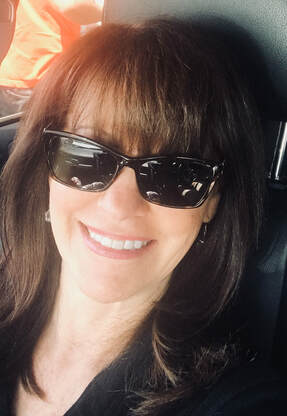 'The Tutor' has a very interesting plot. Where did you get the idea for it? My daughter lived in Roatan for a few years and I visited often. I wrote a detailed journal whenever I was there, knowing one day it would be the setting for my fourth novel. For psychological reasons I have yet to understand, all of my novels involve a child. My heroines are either trying to protect an unusually gifted child from the world at large, adopt a child in a questionable manner, find a missing and presumed dead child, or hide and heal a child that has been traumatized. This, of course, sometimes makes my heroines look more like backdoor villains, unless you closely examine their motives. When constructing the plot for ‘The Tutor’ around a traumatized child, my goals were, as always, to show the resilience, persistence, determination and strength of mothers everywhere, and even more specifically, women. When we set our minds to it, there is nothing we can’t accomplish. Men of course have always known this. I think it’s why they work so hard at trying to hold us back. What will their recourse be once we take over the world? (Visualize an emoji laughing face :) How has your creative process changed with your growth as an author? I work a lot harder at having the reader relate to my heroine from the beginning of the novel. It was a little disconcerting to learn that my heroines weren’t especially likable in the beginning of my books. I’m all for Scarlet O’Hara type heroines, but only to a point. Have you always liked to write, or did this gift reveal itself to you later in life? I have been writing since I could hold a pencil. I had a reputation for sketching seascapes on my math papers and writing stories on the back. I guess I was always subconsciously rebellious toward a school system that doesn’t value right-brained thinkers. Vandalizing my math papers was only one of many ways in which I let my creativity plow over their unimaginative curriculum. Those few teachers who understand me predicted I would write books one day. Do you know what you'll be penning next, and can you share a little about it? My next novel, surprisingly, will also involve a child. This time my heroine wants to get pregnant so badly she overlooks never having loved her husband, just to make it happen. True to my style, a lot of ponderous plotlines are in this book. The story begins in wine country, specifically Napa, California (where we lived the last 2 years until moving back to Oregon). It shifts between there and Central Oregon. All of my books have a couple wildly different settings, and all of them are based on places I have lived or traveled. This might be why settings are considered one of my strengths. There is a little girl in the novel, and I can’t say any more about that without revealing too much. The reader will have to decide if Katia (my heroine) is really in a coma, or has left her physical body and been transported to another time and place. Perhaps both? Part of the suspense involves her villainous husband, and what measures he will take to end her life, whether in a coma, or not. 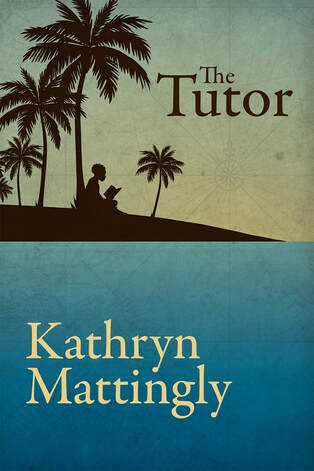 THE TUTUR Natalie (the tutor) is fleeing her unconscionable husband. Matti is fleeing what he witnessed his father do. They end up on the little known island of Roatan, where Natalie’s new friend, Izzy, is fleeing from old island ways that hold women back. Nic, who ends up on the island through a strange set of circumstances, wants to flee his overbearing family. But at what cost will each of them find their redemption? FROM AMAZON REVIEWS Beautiful story of a woman’s journey to empowerment… Love, Betrayal, and Paradise - what more could you want… Lyrical and suspenseful tale of escape and renewal… AUTHOR PAGES
Kathryn and I traded interviews this week. You can read mine on her blog.
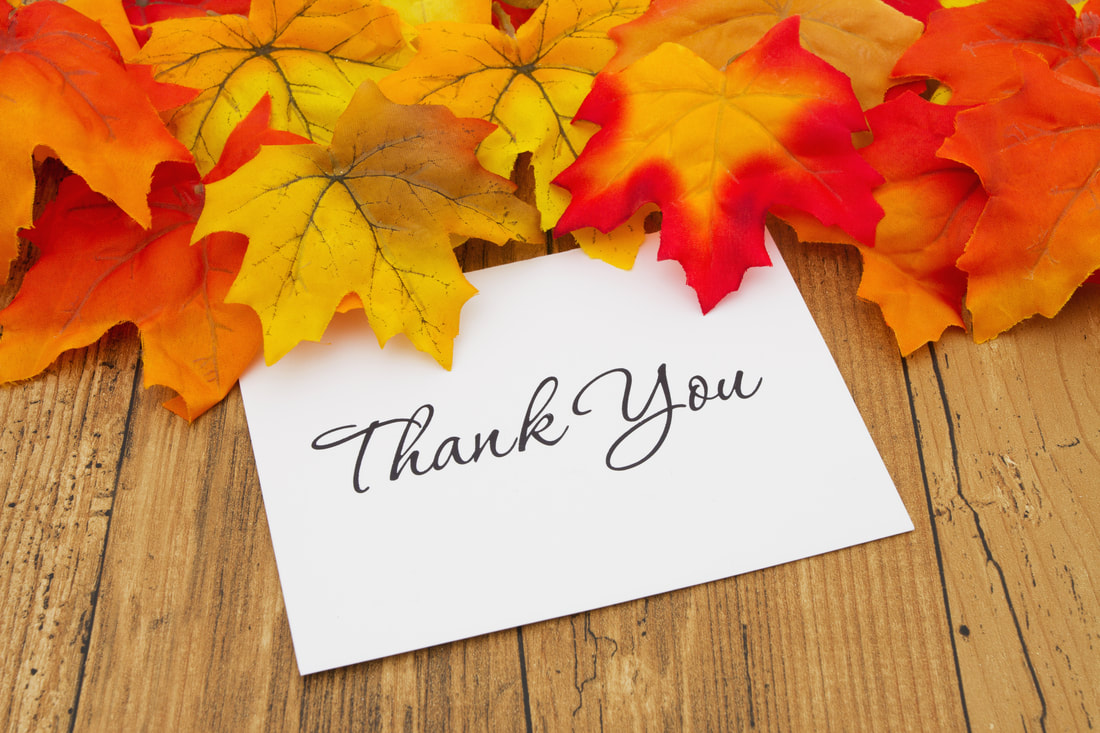 It has been such an interesting and exciting year, especially here on the blog. We'll have new authors telling us their stories starting next week, but today I'd like to take this chance to thank all the amazing authors who've shared their experiences with us. We've been so fortunate to have aspiring and emerging authors, self-published and traditionally published authors, just starting out authors and New York Times Bestsellers, and everyone in between. Thanks for the stories. And thank you readers for taking an interest in all these wonderful authors! Below you'll find the links to all the authors who've participated in #WhatsYourStory to date. Check them out, add their books to your to-be-read lists and share them with your friends and family. Happy Thanksgiving!  Seriously?!? Seriously?!? As a former marketer, I understand the need to find a company’s target audience by identifying its niche, its market and by putting it into a category that addresses the needs of that market. So companies in the larger real estate market might be further identified as luxury, or commercial, or residential. You get the idea, right? As a marketer, I learned to embrace this concept. As a writer, I want to scream when it comes to categorization. When people ask what kind of books I write, I automatically wish it was as simple as saying “I write romance” or “science fiction.” The genre writers have all the luck (at least the ones who are comfortably seated in their genre and happily identify with it). For me, it’s complicated. My first run-in as a writer with categorization came about six months after finishing my first novel. I entered the manuscript in a contest, if for no other reason than to get it out there and have another set of eyes on it. When the feedback form arrived a few months later, I was annoyed. Not because I didn’t win (winning wasn’t really my intention and the guy who did win was so out-of-this-world talented that I’m glad he beat me), but because the critic called my work “women’s fiction.” Now, let me first say that I love love love me some women’s fiction. I studied psychology in grad school because I adore delving into people’s emotional journeys. And, I’m a hopeless romantic, so I’m also an avid reader of chick-lit and even some genre romance. Though up until the point when my book was called “women’s fiction,” I can’t say that I ever consciously gave much thought to these distinctions. I love reading characters I can get to know and relate to, whether they’re detectives in police procedurals or heroines in steamy romances. I’m non-discriminating. As long as there’s someone I can root for, I’m happy. So, why was I so irritated by this categorization, you ask? Mostly, I couldn’t really figure out what “women’s fiction” actually was. At the time, it sounded like books that only women would read and, being a woman who reads all kinds of books, that didn’t resonate with me. Further exploration led me to the definition “layered stories that are driven by the main character’s emotional journey.” OK. Maybe my book did fit this genre. After all, the book is all about my main character’s emotional journey as she navigates romance, takes risks in her professional life and comes to terms with truths about her family. But why is this type of story only for women? That was the thing that continued to bother me. The idea that a tale of emotional journey would be marketed as “women’s” fiction seemed terribly unfair to men who might also enjoy that sort of depth. The marketer in me knew that I’d have to embrace some of these categories. So I did. I thought about all the types of readers I wanted to reach, and looked for pathways to those readers. When readers described the book as chick-lit, I started participating in chick-lit-oriented events. Same with women's fiction. I marketed my book in general fiction arenas as well, but the field is so broad and the competition so fierce that the idea of categorizing my book to reach a more targeted audience started to make more sense and felt less objectionable. Until the day when it was suggested that my second book might not meet the criteria for women’s fiction (and that my first book probably didn’t either—too much romance). WTF? I mean, seriously!?! If not women’s fiction, then what? In the past two years, I’ve been told that my book has too much romance for women’s fiction, is too commercial for literary fiction, is too heavy for chick-lit, and is too clean for genre romance. Where in the world do I fit in? It was at the peak of this crisis that I finally had a long talk with myself and reached this conclusion: I just want readers to read my book and form their own opinions. Really. I love that some people read Wallflower Blooming as a light romance and loved it. I love that some people really identified with Val and could apply some of the lessons she learned to their own lives. I even loved the 1-star review on Amazon that lambasted me for pushing my political agenda in my book. My response: “whoa, really? I thought the book was a little fluffy to elicit such venom.” I love that people felt something when they read it, and, of course, I’m glad that most people liked it. Whether they found comfort in the pages or simply a fun escape from the pace of everyday life, it’s really gratifying to have people read a story that you wrote and to feel something for your characters. So, what have I learned from this whole categorization debacle? To keep writing and to stay true to myself. Do I believe that chick-lit readers will love my book? Sure. At least some will. And some readers of women’s fiction will love it. And some will think there’s too much romance. Will romance fans dig it? Yep. And some will say there’s not enough sex. And that’s the beauty of books. We bring as much to each book we read as we find in the pages. It’s a truly unique experience for each and every reader. As a writer, there’s no way to avoid categorization. Just try entering a writing contest or submitting to an agent or shopping for a publisher. Categorization helps narrow down the field and allows our manuscripts to get into the right hands (in theory). It can also be a huge pain in the arse. I imagine that my love-hate relationship with categorization will continue. But what I hope most is that readers will take a chance on my books and form their own opinions. I hope they’ll open the pages and see what speaks to them. Thanks for reading! 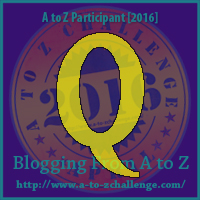 I love “Q.” It includes fun words like queasy and quirky. But my favorite is quixotic, because, quite frankly, I feel this way all the time! For the record, quixotic refers to something or someone who is “exceedingly idealistic.” Some synonyms: romantic, visionary and extravagant...oh yeah, and also unrealistic, impractical and starry-eyed. If you’ve ever worked on a project with me, you know that I dream big. I spout off extremely ambitious ideas and people look at me like I’m crazy. When I give gifts, I go overboard. And I always expect the best out of people. It’s not just disappointing but shocking at times when someone is unkind. Exceedingly idealistic, that’s me. OK, maybe I’m more realistic than I give myself credit for. But I like to imagine a world full of love and kindness, and I’m not at all convinced it’s not possible. The word quixotic became popular after the publication of Miguel de Cervantes’ classic work The Ingenious Gentleman Don Quixote of La Mancha. In the novel, Don Quixote is so affected by chivalric romances that he sets off on a series of adventures guided by fantasy rather than reality. Who does that sound like people? Don’t we always complain that watching romantic movies sets false expectations about real relationships? For those of us who love a good romance, does it ever make real life seem a little bit dull? Maybe we all feel a bit quixotic from time to time. That being said, I just booked excursions for my honeymoon including tours in “Romantic Austria” where I foresee a lot of kissing and cuddling going on. So, I guess real life can be pretty fantastic too. Eat your heart out, Elizabeth Bennett. 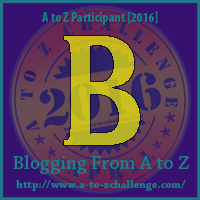 Boredom is not something that I feel terribly often. This is mostly due to the fact that I keep my to-do list REALLY long. And if I have some down time, I pick up a book. So, in honor of boredom, and as a recommendation on how to curb it, I thought I’d dedicate some space to another B words – books. Here are some of my favorites. Mystery / Thrillers / Suspense These are my primary source of entertainment. I’m currently reading through the D.D. Warren series by Lisa Gardener. I also enjoy Gillian Flynn and Mary Kubica for psychological thrillers. And I love me a good detective novel. The Prey series by John Sanford is wonderful and for a little serial killer action, Tami Hoag’s Liska & Kovac series provide hours of gruesome entertainment. Literary Can’t go wrong with Isabel Allende for something beautiful and full of emotion. I started with The House of the Spirits and went from there. Allende’s tribute to her daughter Paula is so touching, it’ll bring you to tears. And there’s nothing like the classics. For romance, a little dose of Jane Austen. For drama, Tolstoy’s Anna Karenina was already on my list of favorites before it made it to Oprah’s list. Young Adult I have kids so I read a lot of kinds books. My son is a voracious reader and we just finished the Harry Potter series. It had been years since I read those books and it was even better the second time through. We’ve also read every book Rick Riordan ever wrote. He’s turned my son into a mythology nut and the books are just plain fun. Some of my other favorites from my childhood including Lloyd Alexander’s Book of Three series, Susan Cooper’s Dark is Rising series and, of course, C.S. Lewis’s Chronicles of Narnia. What are your favorites? 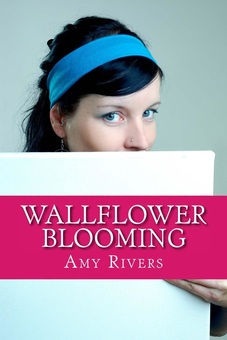 Categorizing my work gives me a headache. When I think about it, I always get this scene from The Princess Bride running through my head: The Battle of Wits https://youtu.be/i6TQ7ljcsjk "You guessed wrong! That's what's so funny!!" Picking the right category for your book is important if you want people to read it. Why? It comes down to marketing and targeting your audience. For instance, if you wrote a romance, it wouldn’t be a natural fit for horror readers, right? That’s not to say that a horror reader wouldn’t like your book. It just means that, for the purposes of selling the book, you want to put it in front the readers most likely to read it. Write a romance, market it to romance readers. Pretty simple, right? Wrong! It actually gets really tricky, especially when you’re writing fiction that is aimed primarily at a female audience. General fiction vs. women’s fiction vs. chick-lit. Oh my! Ok, so here’s how this story pans out in my head. When I started writing Wallflower Blooming, I wasn’t thinking about where it would fit on a bookstore shelf. I was thinking about the characters and what happens to them. I knew a few things. 1) I wanted to have a female protagonist, partly because I think women are awesome and partly because, well, I am one and so it’s a point of view I understand pretty intimately. 2) I wanted to avoid getting all romantic. I never set out to write a romance, not because I don’t love romance, but simply because I’m such a romantic sap that I wanted to challenge myself not to make it all about love. (those who know me will be chuckling here…don’t worry, I understand). So I wrote the book. About half way through an unexpected thing happened…my characters took over. The book went in a completely different direction than I’d planned and guess what, it got all romantic! But here’s the thing...I like it! I like the way the book turned out. At the end of the day, my characters felt real to me and their struggles, believable. So I was happy. THEN, on a whim, I entered my manuscript in a contest. I didn’t win (but the feedback was so immensely helpful). What DID happen though was that the judge called my book women’s fiction. Having come from a background working with victims, most of whom were women, I have strong feelings about the way gender is used to differentiate things and I resisted the label. Yes, my book is about a woman, but it’s still just fiction, right? Well, that explanation only works if you never want anyone to pick up your book. I, however, wanted to find an agent. And part of finding an agent entails understanding where your book fits in the overall scheme of book marketing. As an often light-hearted book about a woman character who finds herself romantically involved, I could see why that judge labeled it women’s fiction. But the situation only got more complicated. One of my beta readers called the book chick-lit! And I sort of scratched my head and thought, “wait a minute, I’ve finally accepted women’s fiction, can’t we just stop there?” So, I had to consider whether my book is actually chick-lit. And this led me to the question: “What the heck is the difference between women’s fiction and chick-lit???” There are about a zillion articles on this very topic, which made me feel a little less clueless. Here’s one I liked. http://agencygatekeeper.blogspot.com/2010/07/romance-womens-fiction-or-chick-lit.html So, the gist seems to be that chick-lit and women’s fiction both focus primarily on situations involving women. But chick-lit tends to be more light-hearted and appeals to a younger audience. Women’s fiction tackles deeper issues and appeals to a broader range of women. Well, that didn’t help and I’ll tell you why. Wallflower Blooming tackles women’s issues...some lighthearted and romantic, some deeper. It’s an entertaining read, but still thought provoking. It’s got some romance going on, but it also deals in family struggles and personal growth…and, oh yes, small town politics. It’s been read and enjoyed by women ranging in age from 18-86 (so far). So you tell me. Women’s fiction or chick-lit? Maybe both. I guarantee that it's fiction and there are women in it. So go forth and enjoy! 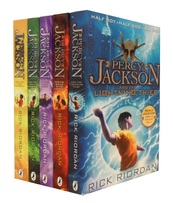 My son and I read together every night. He’s an avid reader (like his mom) and he does a lot of independent reading as well, but every night we read a chapter or two from whatever book series we’re working on. Right now, we’re making our way through the second book from the Percy Jackson series by Rick Riordan. Man, I had no idea what I was getting myself into! These books are excellent and they are chalk full of Greek mythology. My son and I are both getting schooled! Highly recommended reading. 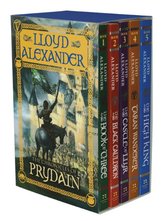 Another series we completed recently were The Chronicles of Prydain, written in the 1960’s by Lloyd Alexander. The second book in the series, The Black Cauldron, was made into an animated feature in 1985, but the books are much darker and infinitely better than the movie. These were some of my favorites as a kid and my son loved them. 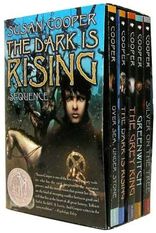 And last but not least, we read The Dark is Rising Sequence by Susan Cooper. Another one of my favorite childhood reads, I’ve re-read this series as an adult several times. The story is compelling and weaves Arthurian legend into an epic battle between good and evil, with a group of children playing important roles in saving the human race. In 2007, a movie adaptation was made, The Seeker. I was so excited, but alas, as is often the case, the movie did not live up to the wonders of its print predecessor. In fact, I’d go so far as to say that the movie was awful and that anyone who’s seen the movie and is skeptical about the books will find very little resemblance between the two. We’ve read more titles, but these have been some of my favorites so far. I love sharing books I love with my children and its especially fun to revisit some of my childhood picks as an adult. YA authors are amazing storytellers! 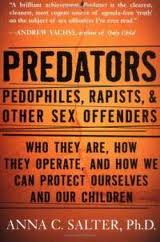 I am reading Predators: Pedophiles, Rapists & Other Sex Offenders which is a memoir and cautionary tale told by Anna Salter PhD. This book will give you nightmares, but it is a fascinating study on sex offenders and how they think. Dr. Salter has compiled anecdotal evidence, as well as direct quotes from incarcerated sex offenders, that illustrates how alarmingly methodical and cunning offenders can be and how even the most expert professionals can be fooled time and time again. This book has a particular focus on sex offenders who pray on children and while it probably will make most parents a little bit paranoid, I think its worth a read-through and some frank community dialogues. Law enforcement professionals, prison staff and attorneys / legal staff would also benefit greatly from reading this book. Note: This book is disturbing. It WILL affect you. I am not going to downplay this because I know that some people will have a hard time coping with the material. That said, I think that the way we, as a community, end sexual violence is to start an open dialogue even when the topics are uncomfortable. And I believe wholeheartedly that you can't read this book without talking about it. |
AuthorI'm generally pulled in a million different directions and I wouldn't trade it for the world. Here's a glimpse of my life - hope you enjoy it! And if there's a big lapse between posts, well, that's the way life goes in Amy's world. Archives
October 2022
Categories
All
|
|
Copyright 2024 by Amy Rivers. All rights reserved. |
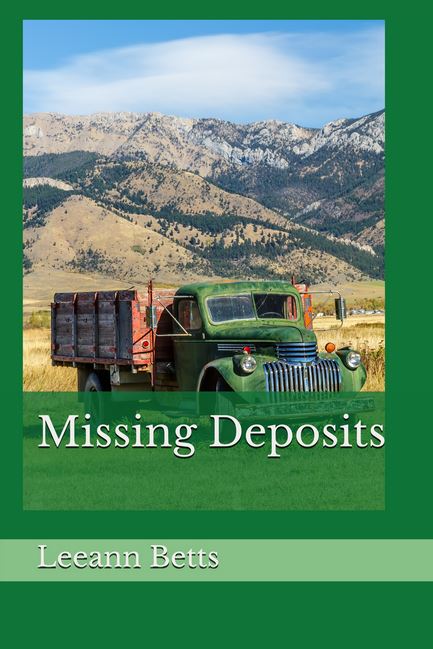
 RSS Feed
RSS Feed